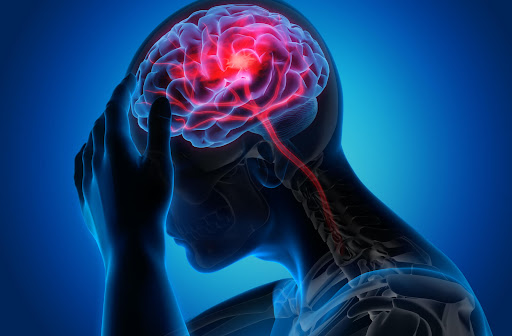Cognition is the mental process of acquiring, organizing, and using information, and different parts of the brain control these processes. When these parts of the brain get damaged by a stroke, it can affect your cognitive abilities.
The prevalence of post-stroke cognitive impairment ranges between 20% and 80%, but there is life after a stroke. Cognitive skills can improve within the first few months and with continued recovery efforts.
Recovery and support after having a stroke are crucial for living with mobility and independence. Assisted living provides supervision and support for cognitive challenges such as memory and respite care.
Understanding the impacts of stroke and working to improve cognitive skills can lead to a better quality of life for stroke patients.
Stroke and Cognitive Skills
The most common type of stroke is when a blood clot forms in blood vessels in the brain, vessels leading to the brain, or travels from other parts of the body and blocks the supply of oxygen-rich blood to the brain. Another way is when a blood vessel ruptures, causing a hemorrhage.
The severity of impairment from a stroke can vary from one person to the next and from day to day. The cognitive effects of a stroke depend on:
- The amount of brain tissue that is damaged.
- Location of the obstruction, either the right or left side of the brain.
If a stroke happens on the left side of the brain, cognitive impairment occurs on the right:
- Paralysis on the right of the body
- Ability to communicate with speech and language problems
- Impact planning, reasoning, and judgment
- Memory loss
If a stroke happens on the right side of the brain, cognitive impairment occurs on the left:
- Paralysis on the left of the body
- Vision problems
- Memory loss
- Difficulty with problem-solving
Stroke patients have a greater risk of developing dementia compared to people who have not had a stroke. Approximately 1 in 4 people who have had a stroke will develop signs of dementia.
Ways to Improve Cognitive Skills After a Stroke
Cognitive impairment can be frustrating and confusing, especially during the first few months after suffering a stroke. Improving cognitive skills with cognitive rehabilitation involves medical and therapeutic services to decrease dependence and enhance the quality of life.
- For memory loss, strategies include using a notebook to take notes or creating to-do lists and daily planners to recall appointments and establish routines.
- Break down activities or tasks into logical steps. These repetitive tasks reinforce cognitive ability and allow stroke patients to relearn everyday skills until they become second nature.
- Use attention-enhancing exercises for processing, retaining, and recalling information.
- Undergo occupational therapy to learn social skills, judgment, and safety awareness and regain a level of independence.
- Speech therapy to regain the ability to speak, swallow, listen, write, and comprehend.
- Play card games, and do puzzles and crosswords to regain problem-solving skills. Computer programs and applications may also help with brain functions.
- Seek out emotional support from your doctor, counselor, or support group. Anxiety and depression are common after suffering a stroke.
- Be patient and give yourself more time to do things. Also, avoid doing more than one task at a time. Overloading yourself can lead to frustration.
- Physical exercise increases blood flow and oxygen levels all over the body. A study on the effects of physical activity on post-stroke cognitive function shows a significant positive effect on cognition recovery.
- Rest more often. Fatigue is a common symptom after having a stroke and can make concentrating and focusing harder. Being stressed and overtired can make it worse. Meditation, going for walks, and music are some ways to relax and recharge.
- Avoid noisy, busy environments and visual distractions to help you focus more.
The sooner you start cognitive rehabilitation, the better. Cognitive impairment can improve in the first 3 months of having a stroke. During this time, the brain is more active in repairing itself. It may slow down after this but will continue to create new neural pathways.
Cognitive Recovery
Cognitive decline can continue even after having a stroke. However, with early efforts to improve cognitive skills in stroke patients, recovery to some extent is possible.
Cognitive rehabilitation involves reinforcing, strengthening, and reestablishing previously learned behavior and learning new patterns to compensate for impaired neurological functioning.
All American at Wrentham provides a supportive environment for adults with cognitive decline. Give us a call to learn more about how we meet the needs of people with memory loss and other challenges.



